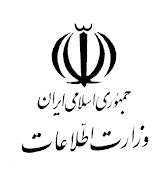
Friday, April 17, 2009 2:08 PM
By NBC News’ Carol Grisanti and Mushtaq Yusufzai
ISLAMABAD, Pakistan – "I was given $122 to drop chips wrapped in cigarette paper at al-Qaida and Taliban houses," confessed 19-year-old Habibur Rehman, just before the Taliban shot him dead for spying for the United States. "If I was successful, I was told, I would be given thousands of dollars," he said.
In a video released last week by the Taliban as a warning to other would-be spies, Rehman recounted how he was recruited to spy on the Taliban in North Waziristan and drop small transmitter chips on specific targets to call in CIA pilotless drone aircraft.
"I thought this was a very easy job," Rehman said in the video before he was killed. "The money was good so I started throwing the chips all over. I knew people were dying because of what I was doing, but I needed the money."
VIDEO: Alleged Taliban spy confession
The chips transmit a signal to a satellite overhead. The drones, armed with Hellfire missiles, are controlled and remotely piloted by the CIA in the United States, according to Pakistani and western military analysts. Once the signal is received, the drone takes off from Shamsi air base in southwestern Pakistan and collects data and intelligence to attack the chosen Taliban and al-Qaida target.
A U.S. official, who spoke to NBC News on the condition of anonymity about the Taliban allegation said, "People should recognize this for what it is … extremist propaganda."
President Barack Obama has stated that he considers the drone program an effective tool to target al-Qaida sanctuaries in Pakistan’s tribal areas along the mountainous border with Afghanistan. Nine out of 20 wanted al-Qaida operatives, who were on a list drawn up by U.S. official last year, have been killed by drones using intelligence provided from chips planted by Pakistani and Afghan tribesmen working as spies.
Taliban says on to strategy
The top Taliban leaders believe they now have successfully infiltrated many of the spy networks operated by the U.S. and Pakistani military in North and South Waziristan – but not all.
"We used to watch these planes, but we had no idea they were chasing us and taking pictures of our activities," said a senior Taliban commander in North Waziristan, who spoke on the condition of anonymity.
"In the early days of our jihad, our training camps were visible and people would come and go. We were not so concerned about the security of our locations, but that is all changed now. We abandoned all our old camps and re-located to new places," he explained.
The commander, who is close to Hafiz Gul Bahadur, a top Taliban boss in North Waziristan, said that 40 training camps have been moved because their Afghan friends, working for the Americans in Afghanistan, tipped them off about planned U.S. attacks.
"They told us the Americans had gotten pictures of our whereabouts and of our training houses and were planning to attack us through these unmanned planes," the commander said.
The commander said that once the Taliban had foiled their original plans, the Americans started paying Pakistani and Afghan citizens to identify their secret locations.
Taliban-style justice
"Finally, with the help of our sources in the Pakistani and Afghan intelligence agencies, we detained two Afghan tribesmen, who after five days of interrogation by our men, confessed to spying for U.S. forces in Afghanistan. They revealed other names and then we knew there were entire networks of spies operating in our areas," he said.
"Finally we busted one network of spies after another," the commander said and named some Taliban militants in their ranks who were operating as Western agents.
"Mullah Omar recently outlawed beheading of these traitors," the commander added. "Now we shoot them with AK-47 rifles, but only after we are sure of the charges against them."
A senior government official in North Waziristan, who also spoke on condition of anonymity because he feared for his life, said the Taliban have recently executed more than 100 alleged spies in North Waziristan.
Mohammed Nasir, who owns a general store in Miranshah, North Waziristan's main city, said that everyone is scared to death the Taliban will arrest them as spies.
"There is non-stop killing now of people accused of spying," said Nasir. "The government has no control – so the Taliban pick up people and try them in their secret courts. It is impossible to prove one’s innocence."
Before he was shot to death, Rehman said he did not know that he was spying for the United States, he just did it for the money. "I was told that if I could put a chip next to an Arab house, then I would get $12,000," he said.
Courtney Kube, NBC News Pentagon producer, contributed to this report.
























No comments:
Post a Comment